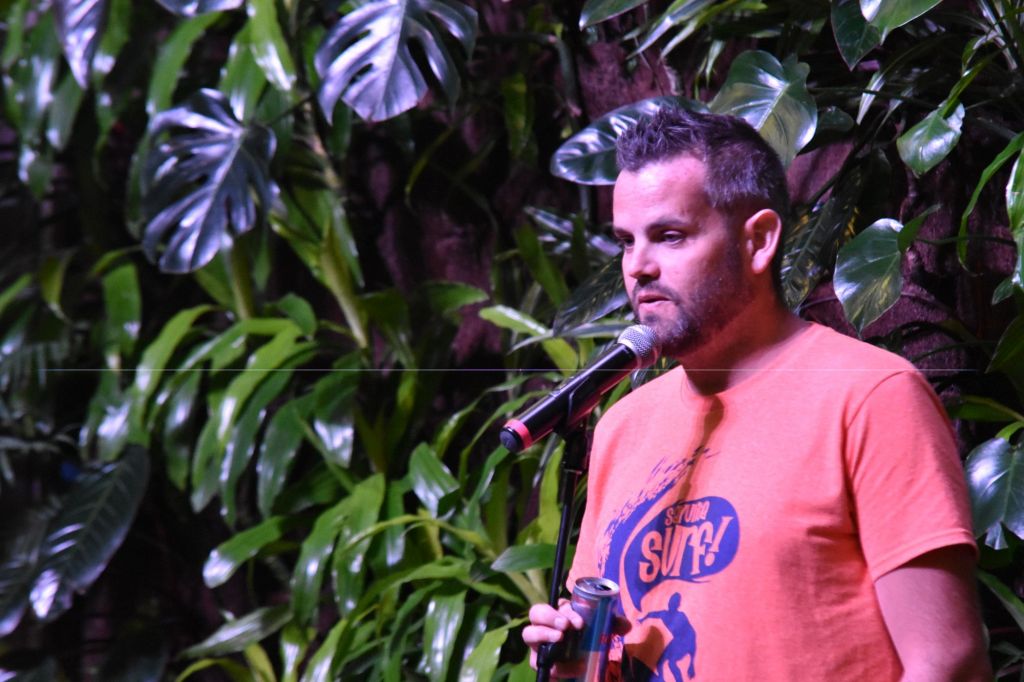This year’s Relay for Life event was the most successful relay in Algonquin’s history, raising over $16,000 for cancer research.
It was due to the efforts of about 100 relay participants, volunteers and the survivors who walked the halls of the ACCE building on the evening of March 23.
Nick Strong, a second year police foundations student, is the co-chair of Algonquin’s Relay for Life club and was largely responsible for the preparation of the event. He became involved with the organization in his youth after his grandmother died of cancer and has been organizing relay after relay in the time since then.
“I’m involved with Relay for Life because I want to make sure that no Canadian has to live in fear of cancer,” said Strong.
Strong, alongside co-chair Kelsey Munro and their fellow volunteers, worked tirelessly to make this year’s event a success. The Algonquin volunteers were assisted by the Canadian Cancer Society, as well as other post-secondary school relay club leaders from far and wide.
And yet, despite the success and the hard work of everyone involved, there was an additional sadness in the air during the night of relay. As the survivors and the participants and the volunteers walked the track, they also walked for Emma Leckey.
She was a student at the University of Toronto, a co-chair in the Relay for Life U of T club and provided the Algonquin chapter with advice and resources to help this year’s event. She was a strong advocate for social justice causes both in her school and beyond.
And on March 15, she was struck by a drunk driver while walking home. She died in hospital on March 20 — just three days before the Algonquin event.
This year’s relay was dedicated to Leckey. Her older brother, Patrick Leckey, was in attendance during the event, and in a quiet corner of a noisy room, Patrick spoke about his sister with the Times, recalling watching her grow up, the time they spent together, and the kind of person she was.
“The almost ironic thing is that she would have been the first person to be embarrassed about the amount of attention she is getting,” he said. “She was never trying to get her name in the paper or be the focus of attention. She was always there to give everything she had to everybody else.”
Even in death, Emma continued helping those around her. An organ donor, she helped save the lives of three people awaiting transplants.
After a moment of silence for Emma, the event was turned over to the survivors.
Men and women from all walks of life took to the stage beneath the plant wall, telling stories of loss and suffering that lead to stories of triumph over their disease. People of different ages, races and backgrounds came together to spread the message of hope.
Among them was Pablo Coffey, an advocate for the Canadian Cancer Society who spoke at length about his constant reoccurring battles with the disease. In fact, this year will mark his 40th surgery related to the disease, all of which have left him with severe memory loss. He forgets names and events and has even forgotten entire relationships.
But he doesn’t let it beat him. He has become a champion for cancer research in Ottawa and has spoken at dozens of events over the years.
“If I could get any message across, it’s that the money goes to the right place,” said Coffey. “No matter where I go, no matter who I talk to, the most important thing I could say is that the money is saving lives.”
Madeleine Bourget, an Algonquin public relations student who previously studied at the University of Ottawa, was another one of the survivors. She did not speak on stage, instead mingling throughout the crowd during the event.
Now two years free of her thyroid cancer, she spoke openly about her battle with the disease.
“I lost my voice, full on laryngitis, and I’m a very talkative person so it was hard for me,” said Bourget. “Over the next few days I started to feel a marble sized lump on the left side of my neck. I didn’t think too much of it but I was aware of it, you know? After about a week I went to a walk-in clinic and they sent me to my family doctor who scheduled me for an ultrasound.”
Despite the dark subject matter, Bourget made it clear that her fight with cancer did not break her spirits. She spoke with speed and humour and listed off medical terminology with a kind of confidence that made it clear she knew exactly what she was dealing with when she was diagnosed.
“They told me it was a tiny, tiny, tiny chance that it was cancerous,” she said. “So I got the diagnosis and they told me I was going to have surgery within two weeks. I didn’t have much time to freak out. I had exams to do, so I focused on that.”
Despite being diagnosed with cancer, Bourget managed to get straight A’s all throughout her illness. She did not let cancer get the better of her.
Because that’s what Relay for Life is about. It’s about surviving the worst circumstances and living past them. It’s about the dream of a future without cancer.
“It’s about hope,” said Coffey.


